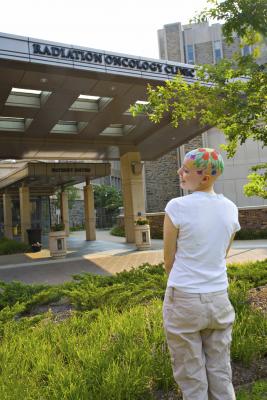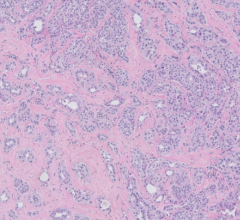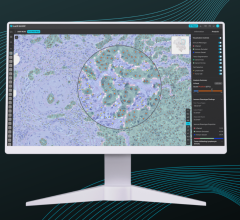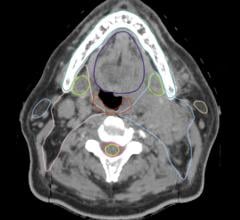
November 21, 2019 — One in three adults treated for cancer may experience side effects from treatment they wish they had known more about, according to a new survey published today in the Journal of Oncology Practice. The national survey of more than 400 U.S. adults, which was sponsored by the American Society for Radiation Oncology (ASTRO), also found that nine in 10 patients felt they made the right treatment decision despite the desire for more information about treatment side effects.
"An unfortunate reality of cancer treatment is that therapy also has side effects that can impact a patient's quality of life. Nearly all patients in the survey felt confident about their treatment decisions, but a sizable number also expressed a clear need for more information about potential side effects," said Reshma Jagsi, M.D., DPhil, FASTRO, senior author of the study and the Newman Family Professor of Radiation Oncology at the University of Michigan.
For each major type of cancer treatment (radiation therapy, chemotherapy, surgery), approximately of one-third of patients experienced treatment-related side effects that they wanted more information about (radiation therapy 37 percent, chemotherapy 36 percent, surgery 34 percent).
Information gaps were related to how severe patients considered their treatment-related side effects to be, with patients who reported severe side effects more likely to say they did not know enough about them. More than a third of patients (38 percent) who reported having severe side effects from cancer treatment also said they felt uninformed, compared to 4 percent of those who reported having minimal side effects.
The survey also looked specifically at patients' experiences with radiation therapy side effects. Patients said these experiences generally were in line with their expectations, although notable numbers felt more tired (29 percent) or weak (28 percent) or experienced worse changes to their energy level (31 percent) than expected.
"More in-depth patient counseling on these side effects could help us better prepare our patients for changes to their quality of life," said Narek Shaverdian, M.D., first author of the study and a radiation oncologist at Memorial Sloan Kettering Cancer Center.
Treatment-related side effects increased with the addition of systemic/drug therapy and/or surgery to a patient's treatment regimen. Fatigue, weakness and pain were significantly more likely to be worse than expected for patients treated with all three modalities, compared to those treated with radiation therapy alone.
"The pronounced impact of treatment side effects for patients receiving combination therapy also suggests a need to build better coordination between oncology disciplines about managing side effects and to improve informed consent processes across cancer therapies," said Shaverdian.
Additional findings from the survey include:
- The most common side effects patients wished they had known more about with radiation therapy included skin irritation, gastrointestinal (GI) symptoms and fatigue. With chemotherapy, patients wanted more information on nerve damage, GI symptoms and fatigue. With surgery, patients wanted more information on pain, nerve damage and numbness.
- When rating their experience with treatment-related side effects on a scale from minimal (0) to severe (100), the average ratings were 45 for radiation therapy side effects, 47 for surgery side effects and 63 for chemotherapy side effects.
- Roughly one in five patients felt they needed more information about possible side effects before they started cancer treatment (radiation therapy: 18 percent, surgery: 20 percent, chemotherapy: 26 percent).
- The side effects that patients were concerned about most frequently before radiation therapy were feeling tired (56 percent), feeling weak (50 percent) and skin burning (46 percent).
- A majority of patients (55 percent) consulted their primary care physician (PCP) about cancer treatment options, and 9 in 10 of these said the PCP's advice was very (64 percent) or somewhat (29 percent) important in their decision making.
- A fourth of all patients surveyed said their PCP was the only information source they consulted. When patients used additional information sources, they were most likely to seek out medical or cancer-related websites, family and friends, the experiences of other patients and cancer support groups.
- More than two-thirds of patients (68%) perceived their radiation oncologist to have the same or more cancer knowledge as the other oncologists on their treatment team.
Survey Details: An online survey was conducted by Public Opinion Strategies on behalf of ASTRO from March to May 2018 using quota-based sampling to draw a nationwide sample of U.S. adults treated for cancer with radiation therapy within the past five years. A total of 403 respondents completed the survey.
Article Details: "Nationwide survey of patients’ perspectives regarding their radiation and multidisciplinary treatment experiences," published online November 20, 2019 in the Journal of Oncology Practice (https://doi.org/10.1200/JOP.19.00376). Authors include Narek Shaverdian, MD; Debra Yeboa, MD; Liz Gardner, PhD; Paul Harari, MD, FASTRO; Kaiping Liao, PhD; Susan McCloskey, MD, PhD; Richard Tuli, MD, PhD; Neha Vapiwala, MD; and Reshma Jagsi, MD, DPhil, FASTRO.
For more information: www.astro.org


 April 12, 2024
April 12, 2024 








